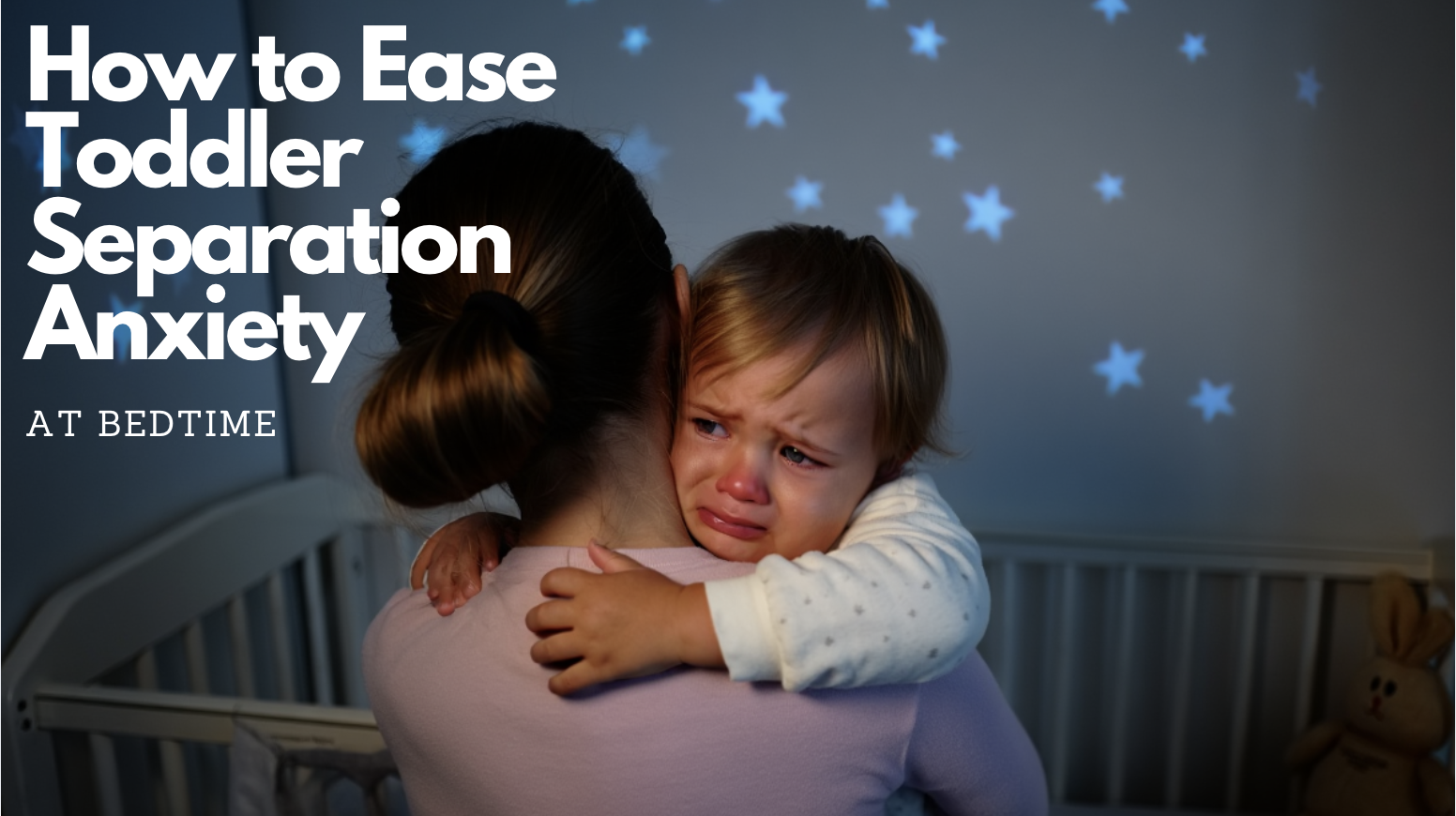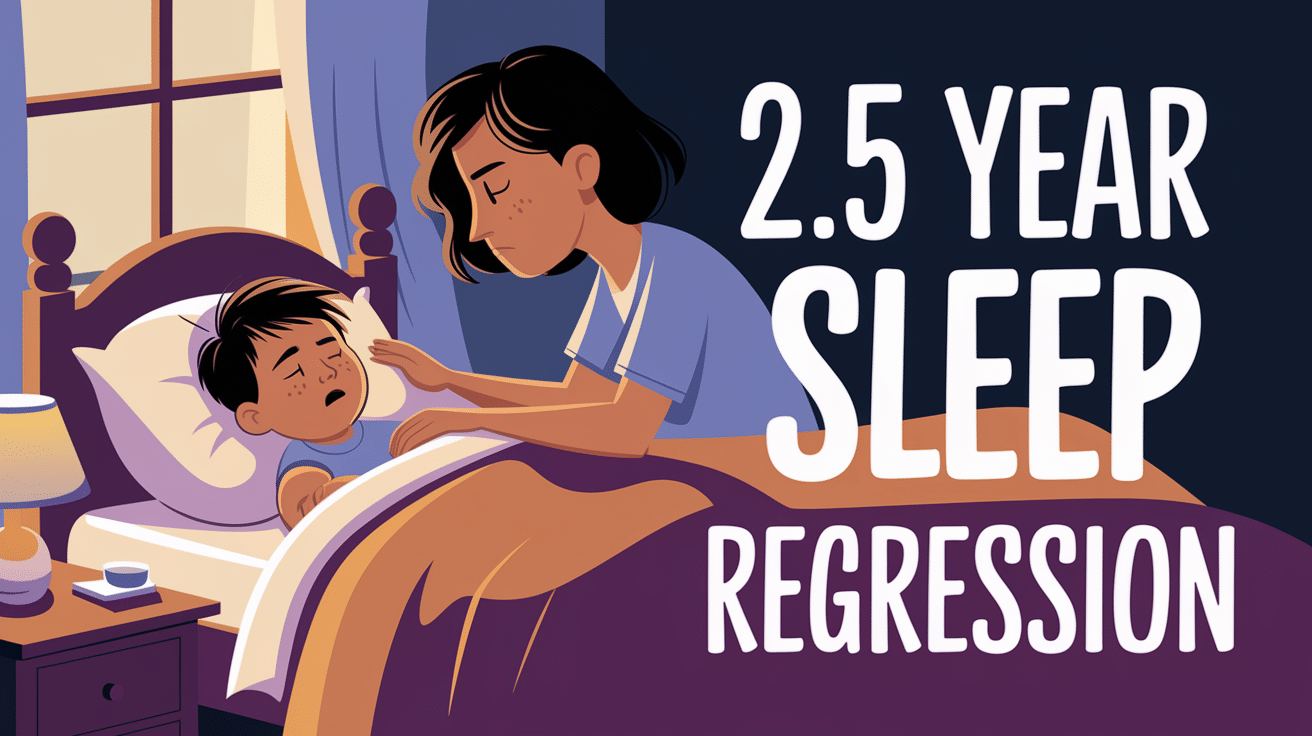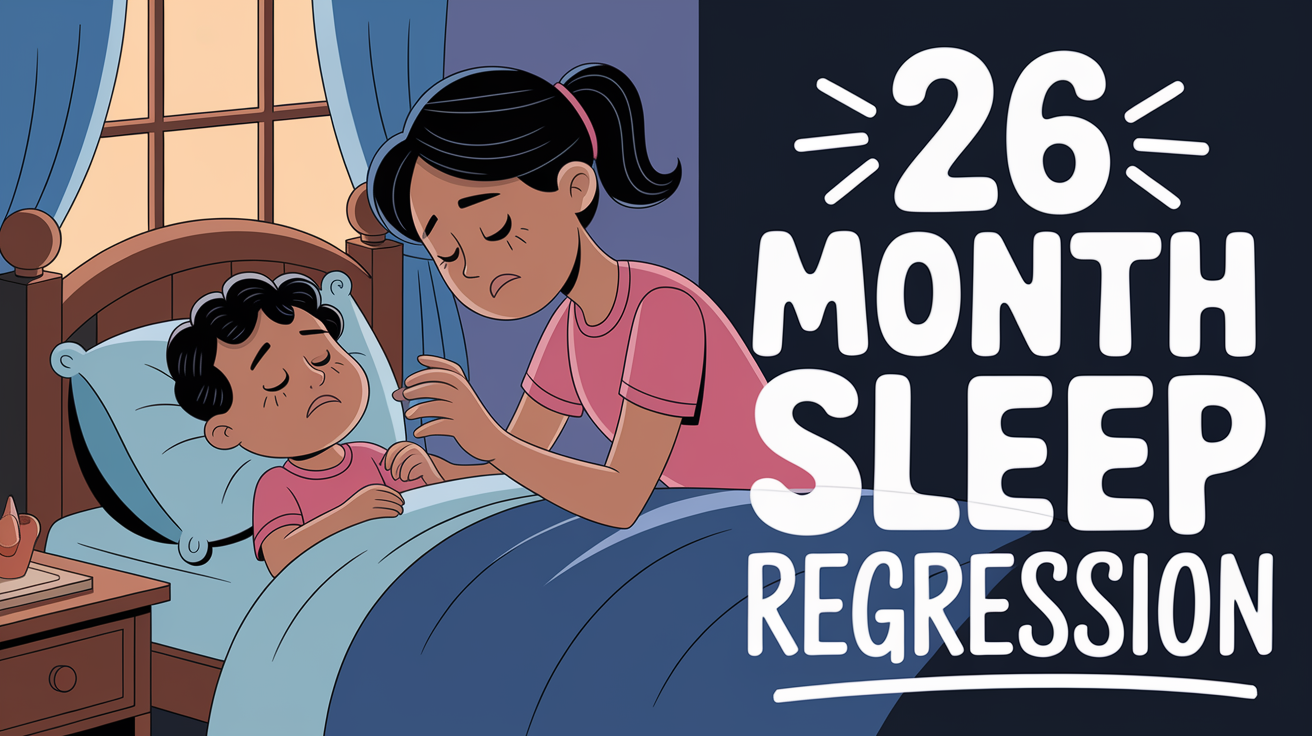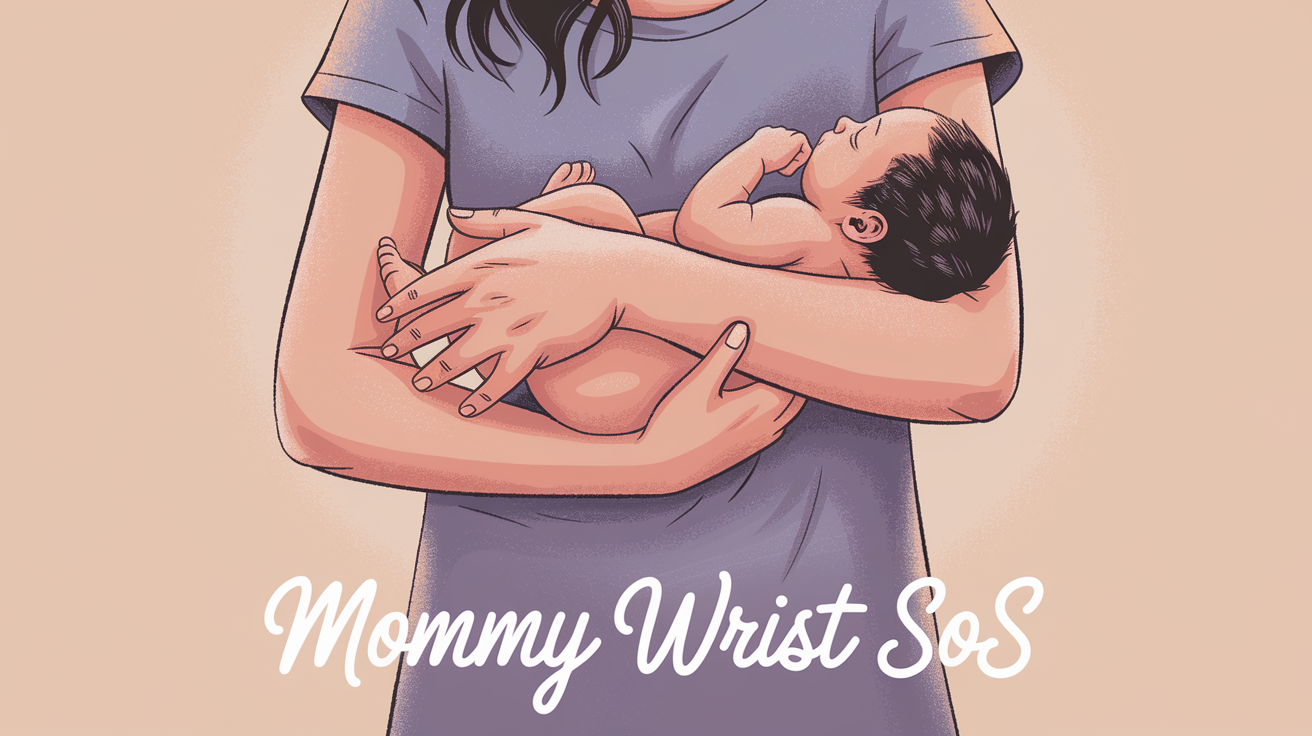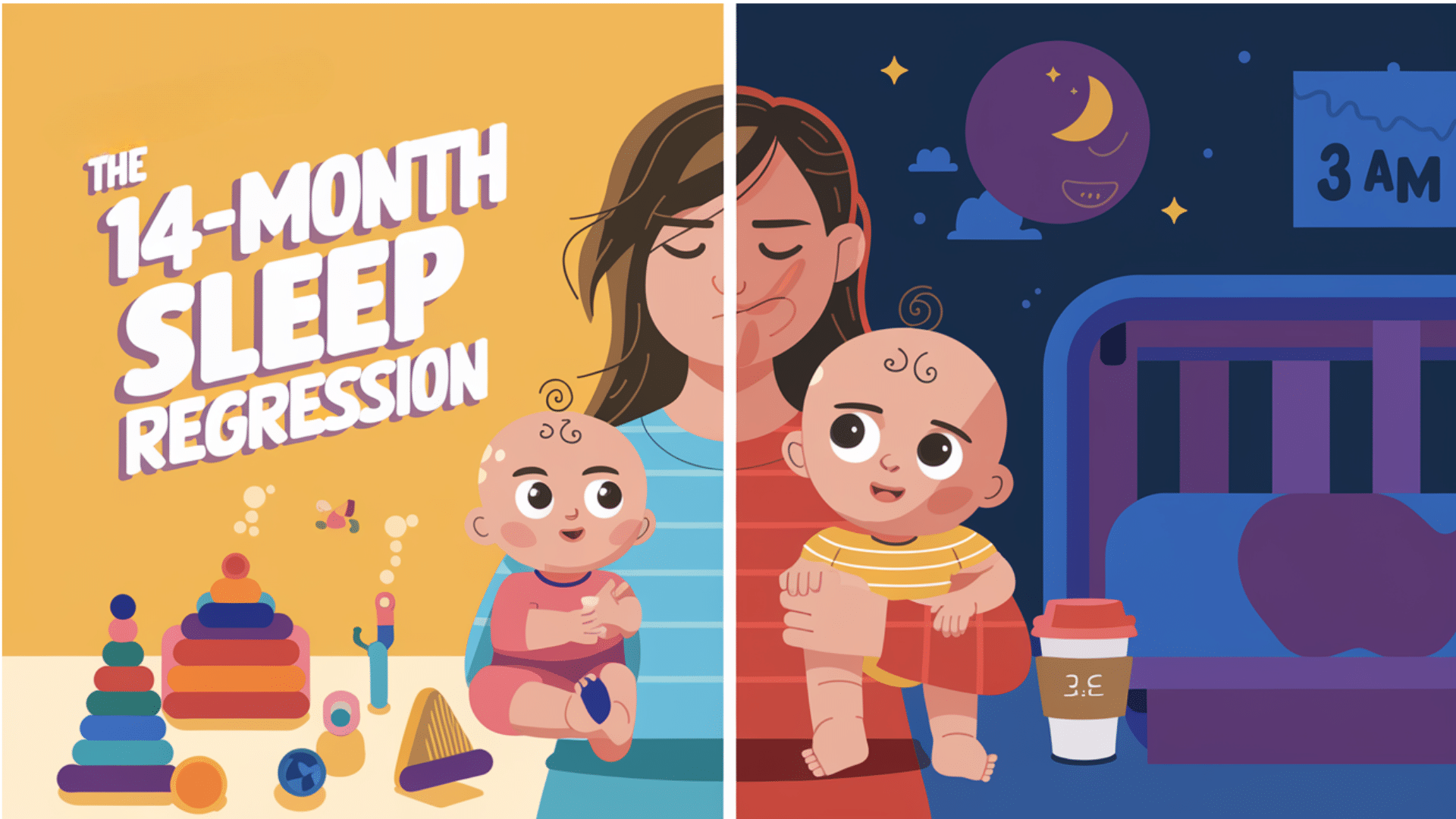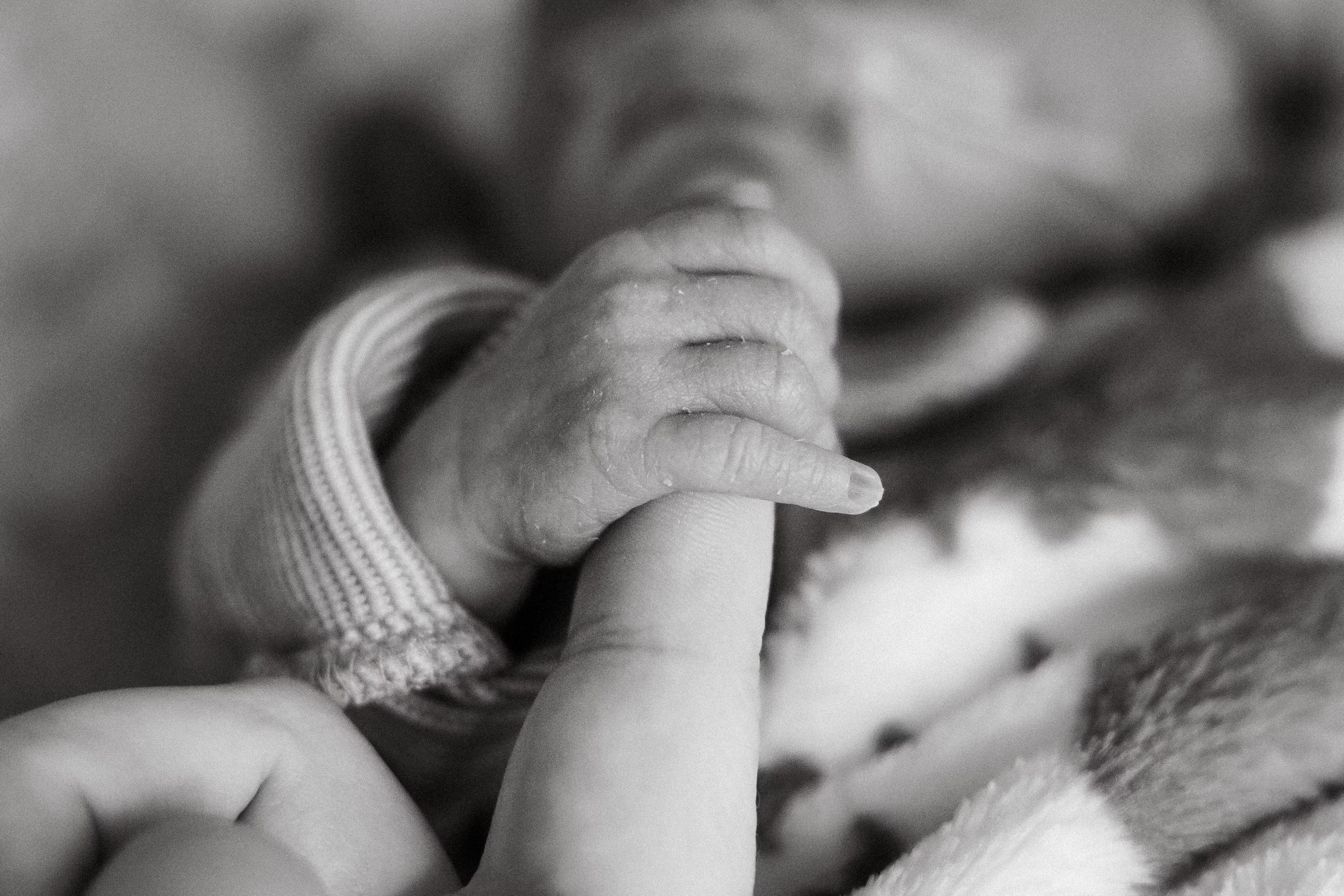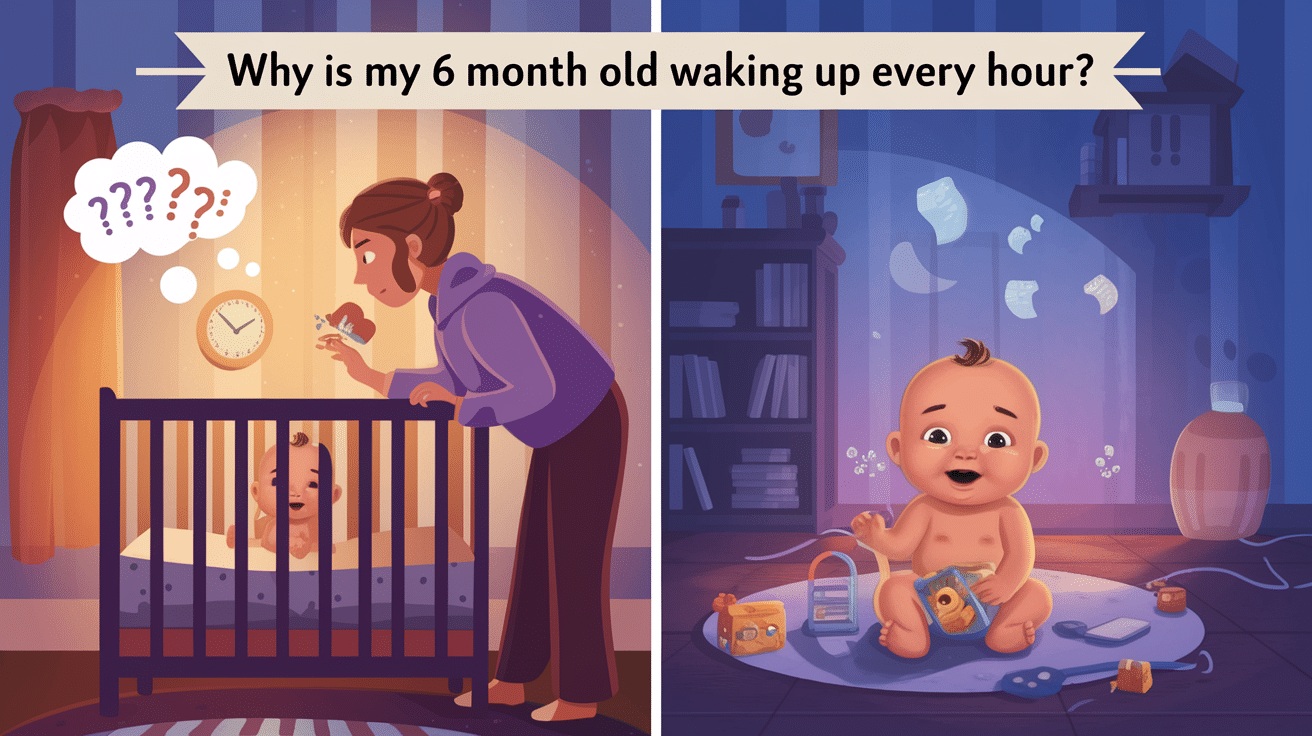
“3 AM again? Is this a growth spurt or a tiny rebellion?” Many parents find themselves puzzled when their once-soundly sleeping baby begins stirring hourly during the night around six months of age.
This common developmental phase happens for several good reasons.
Did you know that Babies spend about 50% of their sleep in REM (active sleep), compared to adults, who pay only 20-25% in this state?
At this stage, your little one is growing quickly, both physically and mentally. Sleep cycles shift as babies become more aware of their surroundings and hit important growth milestones.
Increased hunger might play a role as they become more active during the day. Some babies experience discomfort from teething, which can disrupt sleep patterns.
Understanding the normal causes behind this sleep change can help tired parents respond effectively while maintaining their well-being during this demanding but brief season of parenting.
Understanding Infant Sleep Patterns
At 6 months, babies typically sleep 14-15 hours daily, split between nighttime rest and 2-3 daytime naps. Their sleep structure differs significantly from adults.
Babies move through sleep stages more quickly than grown-ups. They spend more time in light sleep, which explains why they wake often during the night. This waking is a normal developmental behavior, not a sign of poor sleep habits.
Most 6-month-olds can physically go longer without feeding at night, but many still wake from hunger or for comfort. Consistency helps babies learn to link sleep cycles without fully waking.
Some babies naturally settle back to sleep independently, while others signal for parent assistance. Both approaches are perfectly normal at this stage of growth.
Common Causes of Frequent Waking

Hunger, teething pain, growth spurts, separation anxiety, and sleep associations often trigger nighttime wakings in babies and young children.
1. Hunger
Babies have small stomachs and rapid metabolic rates. Their need for regular nourishment often interrupts sleep patterns, especially during the first months of life.
Most newborns can only go 2-3 hours between feedings, and this time gradually lengthens as they grow. Some babies continue night feeding for comfort even after their nutritional needs can be met during daytime hours.
2. Teething
Pain and irritation from emerging teeth disturb sleep. Many babies show signs of discomfort at night when tooth pressure intensifies during horizontal positioning.
Teething symptoms often worsen at night because babies have fewer distractions from the discomfort. A cool teething ring before bed and appropriate pain relief methods recommended by your pediatrician may help reduce nighttime waking.
3. Growth Spurts
The physical development phases require extra calories and can interrupt sleep. Babies often wake more during these periods of rapid physical change.
Growth spurts typically occur around 3 weeks, 6 weeks, 3 months, and 6 months of age, though timing varies for each baby. During these periods, your baby may seem hungrier than usual and have more frequent night-wakings.
4. Separation Anxiety
Cognitive growth around 6-12 months brings awareness of caregiver absence. Waking and calling out for parents reflect normal emotional milestones rather than sleep problems.
Babies developing object permanence understand that you exist even when they can’t see you, which can cause stress when they wake up alone. A consistent bedtime routine with gradual separation helps babies learn that you’ll return.
5. Sleep Associations
Babies learn to connect certain conditions with falling asleep. When they move through sleep cycles and briefly wake, they may need the same conditions (rocking, feeding, etc.) to return to sleep.
These associations form naturally as part of your care routine. If your baby falls asleep nursing or being rocked, they may need that same help when transitioning between sleep cycles during the night.
Sleep Training and Developing Healthy Sleep Habits

Getting good rest benefits both the baby and the parents. Consistent bedtime routines help little ones recognize when it’s time to sleep.
What works: Gentle methods include the chair method, where you gradually move farther from the crib each night. The fading approach involves slowly reducing your presence as the baby falls asleep.
Sleep cues matter. Babies who learn to fall asleep without props like rocking or feeding often rest longer. Parents can help by putting babies down when drowsy but still awake.
Parents need rest, too. Taking shifts for night duties prevents one person from becoming too tired. Sometimes, a 20-minute power nap during a baby’s daytime sleep refreshes more than coffee.
Remember that each child responds differently to sleep strategies. What helps your friend’s baby might not work for yours. Consistency matters more than the specific method you choose.
The Impact of Sleep Environment on Sleep Quality

A proper sleep setting can make all the difference in your 6-month-old’s sleep. Studies show that room temperature between 68-72°F helps babies sleep better through the night.
Soft, dim lighting signals to your baby that it’s time to rest. Consider blackout curtains to block morning light that might wake them too early.
Sound management matters greatly. White noise machines can mask household sounds that might disturb your little one. Keep the volume low and place the machine at a safe distance.
Crib safety remains essential. Use a firm mattress with a fitted sheet only—no blankets, pillows, or toys. Position the crib away from windows, cords, and heaters.
By creating the right sleep conditions, you’re helping your baby develop healthy sleep patterns that benefit their growth and development.
The Role of Parents in Managing Night Wakings
Creating regular bedtime habits helps babies learn when it’s time to sleep. A simple routine might include a warm bath, soft music, and a short story.
Being steady with these habits gives babies a sense of security. When babies wake at night, parents should check if there’s a real need or if the baby is stirring between sleep cycles.
Quick, quiet responses to night cries can help babies learn to self-soothe. Keeping the room dark and interactions brief shows it’s still sleep time.
With parental support, babies can build good sleep skills over time. Each baby has unique sleep patterns, so parents should be patient during this learning time.
Getting enough rest is key for both parents and babies. Taking turns for night duties can help parents stay rested and better able to care for their child.
Special Tip: Try incorporating a consistent “sleep cue” like a special blanket or soft lullaby to help signal to your baby that it’s time to wind down for the night.
When to Seek Medical Advice

Talk to your child’s doctor if sleep troubles last more than a few weeks. Contact medical professionals when your child shows ongoing signs of sleep disturbances that affect daily functioning.
Watch for warning signs like persistent trouble falling asleep, frequent night-waking, loud or irregular breathing during sleep, or unusual movements while sleeping. These may point to underlying health concerns.
Seek help if your child shows daytime symptoms such as unusual tiredness, difficulty focusing, or mood changes. These behaviors are often linked to nighttime sleep problems.
Trust your instincts as a parent. If you feel something isn’t right with your child’s sleep patterns, schedule an appointment with their pediatrician. They can assess if your child might benefit from seeing a sleep specialist or if further testing is needed.
Final Words
Many parents face challenges with children who wake often during the night. This pattern can stem from several factors. Physical needs like hunger or discomfort might interrupt sleep.
Growth milestones and developmental changes frequently affect sleep patterns in babies and toddlers. Environmental factors such as room temperature, noise, or lighting can also play a significant role.
Sleep associations form when children connect falling asleep with specific conditions like being rocked or fed. When they wake between sleep cycles, they seek these same conditions to return to sleep.
Some children are more sensitive sleepers by nature. Others might experience separation anxiety at certain ages.
Most sleep disruptions are temporary phases that children outgrow. Consistent bedtime routines, appropriate sleep environments, and gradual adjustments to self-soothing can help families through these challenging nights.
If you’re interested in more informational content on mothers and babies, feel free to click here and explore other blogs that you might enjoy!
Frequently Asked Questions (FAQs)
1. Why Is My 6-Month-old Suddenly Waking More at Night?
This can happen due to growth spurts, teething discomfort, or developmental milestones. It’s common and typically temporary.
2. Should I Feed My Baby when They Wake at Night?
If your pediatrician confirms your baby is growing well, you might gradually reduce night feedings. Most 6-month-olds can go longer without night feeds.
3. Will Sleep Training Harm My Baby?
Research shows that gentle, consistent methods help babies learn to self-soothe without negatively affecting attachment or development.
4. How Long Should I Wait Before Responding to Night Crying?
Start with brief pauses (1-2 minutes) to see if your baby settles. You can slowly extend this time as your baby builds self-soothing skills.
5. When Should I Talk to A Doctor?
Consult your pediatrician if your baby seems unwell, has feeding problems, or if sleep issues cause significant family stress.






